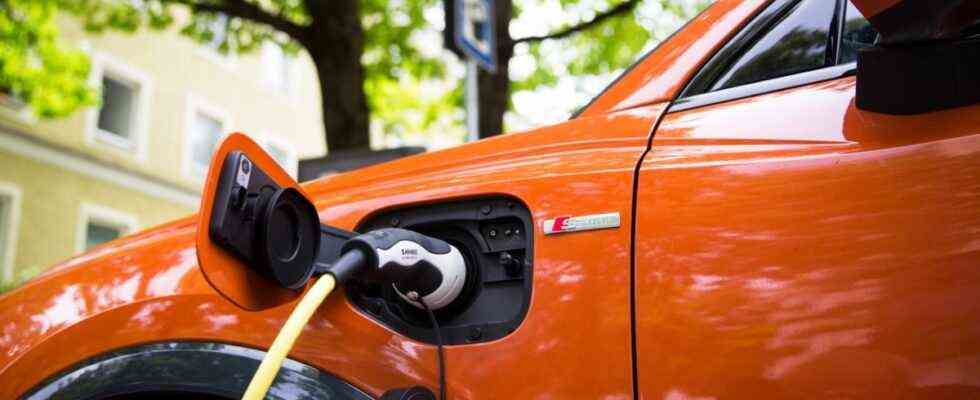The doubling of the electric car subsidies a year ago had a significant impact on the German car market. In the course of twelve months, well over half a million vehicles with a purely electric or a plug-in hybrid engine have been registered – more than in all previous years combined.
The state-fueled boom emerges from the data from the Federal Motor Vehicle Office. Accordingly, the costs of the subsidies have skyrocketed since then: These add up to a good 1.9 billion euros from the beginning of June 2020 to the end of June 2021, as the Federal Office of Economics and Export Control (Bafa) responsible for paying out the subsidies in Eschborn announced.
A year ago, the Federal Cabinet resolved to double the purchase subsidy, with retroactive effect to June 3, for the “innovation premium”. The number of registrations – and the associated expenses – then skyrocketed: from the beginning of June 2020 to the end of May 2021, over 567,000 new electric cars were registered, and another 65,000 were added in June. For comparison: in the previous four years from 2016 to 2019 there had been a total of only 256,000 electric vehicles, before that even fewer. Hybrid cars without an externally chargeable battery are not counted.
One fear of the critics has already been refuted
For the state treasury this means an increase in expenditure through subsidies. In the first half of 2020, 77.6 million euros were paid out to car buyers “for the switch to climate-friendly mobility”, as reported by Bafa. After doubling the grant, the amount increased sevenfold to 575 million in the second half of the year. And this year it was already 1.33 billion euros by the end of June.
The purchase and leasing of pure battery cars and plug-in hybrids with rechargeable batteries are funded. Cars with fuel cell engines are also subsidized, although only minimal numbers of these are permitted.
Criticism that the subsidies mainly benefit foreign manufacturers and not German car companies has not come true. In terms of sales of battery and plug-in hybrid cars, four German manufacturers are in the top four places this year: VW – the brand, not the group – led the way with a good 59,000 cars in the first half of the year, followed by Mercedes, BMW and Audi. As the first foreign manufacturer, Renault was in fifth place. Tesla was also in second place behind VW when it came to purely battery-powered cars.

